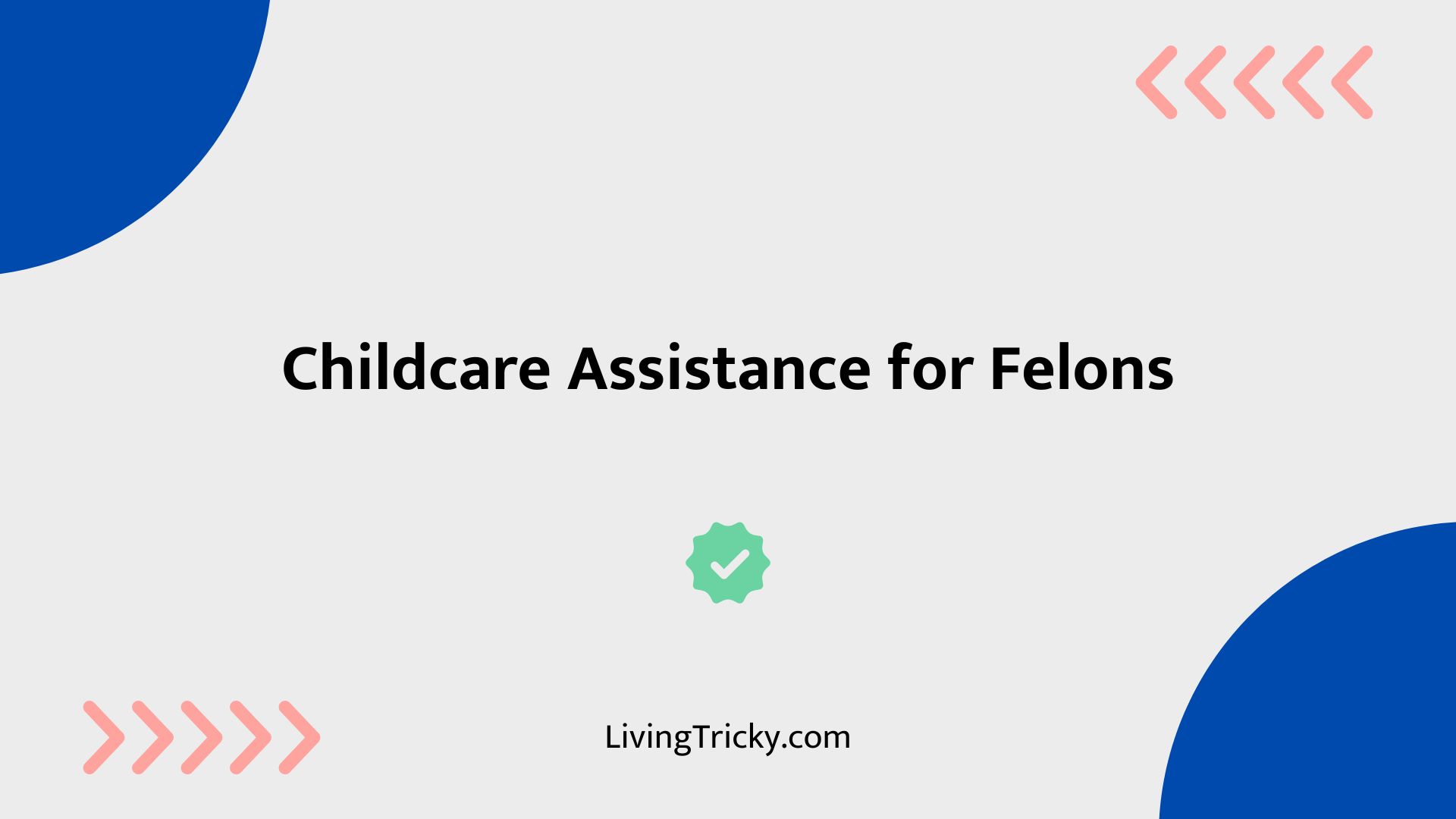Have you ever wondered how essential childcare assistance is for felons trying to rebuild their lives? It can provide the stability you need to focus on finding a job or improving your skills. With programs available specifically for those in your situation, you might find the support you need to overcome financial hurdles. Understanding what options exist can be the first step toward creating a brighter future for you and your family.

Key Takeaways
- Stable childcare is essential for ex-felons to secure employment and reduce recidivism rates.
- Programs like Head Start offer free childcare for children from birth to five years.
- CalWorks Childcare in California covers childcare costs until children turn 12 for eligible families.
- Local social services can connect ex-felons with financial assistance options for childcare.
- ChildCare.gov provides a comprehensive resource for finding tailored childcare programs and support.
Importance of Childcare Assistance for Reintegration
When you’re trying to reintegrate into society after incarceration, securing stable childcare can be a game-changer. Access to low-cost childcare not only eases the financial burden but also allows you to pursue employment opportunities with peace of mind.
Research shows that stable childcare arrangements lead to better employment outcomes, which is essential for reducing recidivism. By obtaining financial assistance for childcare, you’ll improve your chances of successful reintegration, ultimately contributing to healthier families and stronger economies.
Available Childcare Programs for Ex-Felons
How can you find the right childcare programs to support your journey after incarceration? Many options are available for ex-felons seeking childcare assistance.
The Head Start program offers free educational support for children from birth to five years old, benefiting low-income families.
In California, CalWorks Childcare helps cover costs until your child turns 12, enabling you to work or study.
State-funded pre-kindergarten programs also cater to low-income families, providing affordable childcare for kids aged 3-5.
For a comprehensive list of resources, visit ChildCare.gov, where you’ll find various programs designed to support your family’s needs.
Financial Support Options for Childcare
Finding financial support for childcare can be a lifeline as you navigate life after incarceration. Programs like Head Start offer free childcare for children from birth to five, easing the burden of childcare costs.
The Temporary Assistance for Needy Families (TANF) program provides monthly cash grants to low-income families, helping cover these essential expenses.
Additionally, state-funded pre-kindergarten programs open educational opportunities for kids ages 3-5 and often include income guidelines.
Local social services can connect you with various financial assistance options, ensuring you receive the support needed as felons re-entering the workforce and work towards a better future for your family.
Resources for Locating Childcare Assistance
Maneuvering the world of childcare assistance can feel overwhelming, especially after facing the challenges of re-entering society.
Start by exploring ChildCare.gov, a valuable resource that helps families find childcare options, including programs for low-income families.
Look into Head Start for free early childhood education services for children under five.
State-funded pre-kindergarten programs offer educational opportunities for kids ages 3-5, often based on family income.
Don’t forget to connect with local social services, which often administer tailored programs.
Many childcare centers also provide scholarships and financial assistance to support families struggling with costs.
You’re not alone in this journey.
Impact of Childcare on Employment Opportunities
While re-entering the workforce can be challenging, securing reliable childcare is an essential step in opening doors to employment opportunities.
For felons, childcare assistance alleviates financial burdens, enabling you to pursue jobs without the stress of childcare costs. Programs like Head Start offer free childcare, which is invaluable for low-income families aiming for financial stability.
When you have dependable childcare, you’re more likely to maintain stable employment, enhancing your self-sufficiency and reducing recidivism.
This support not only meets immediate employment needs but also allows you to focus on job training and skill development for a brighter future.
Frequently Asked Questions
What to Do if You Can’t Afford Childcare?
If you can’t afford childcare, investigate affordable options like sliding scale programs, government grants, or childcare vouchers. Check local programs and nonprofit assistance, and don’t hesitate to seek family support or employer benefits to ease costs.
Does the State of Texas Offer Child Care Assistance?
Yes, Texas offers childcare assistance through various programs. You’ll need to check eligibility criteria and the application process for financial assistance and childcare subsidies. Local resources and support services can guide you through available community programs.
Who Qualifies for Free Childcare in New Mexico?
You may qualify for free childcare in New Mexico if you meet income requirements, provide necessary documentation, and your child’s under five. Don’t worry about citizenship; special needs considerations and work requirements are included in these programs.
Does the Federal Government Pay for Childcare?
Yes, the federal government supports childcare through various programs. You can access government subsidies, childcare grants, and tax credits. Check eligibility requirements and the application process for state assistance programs designed for low-income families.
Conclusion
In the journey of reintegration, accessing childcare assistance can be the key to revealing a brighter future. Imagine the weight lifted as you focus on job training while knowing your kids are safe and learning. With the right programs and support, you can turn the page on past challenges and welcome new opportunities. So, take that first step—explore your options, and watch as doors open, guiding you toward stability and hope for you and your family.